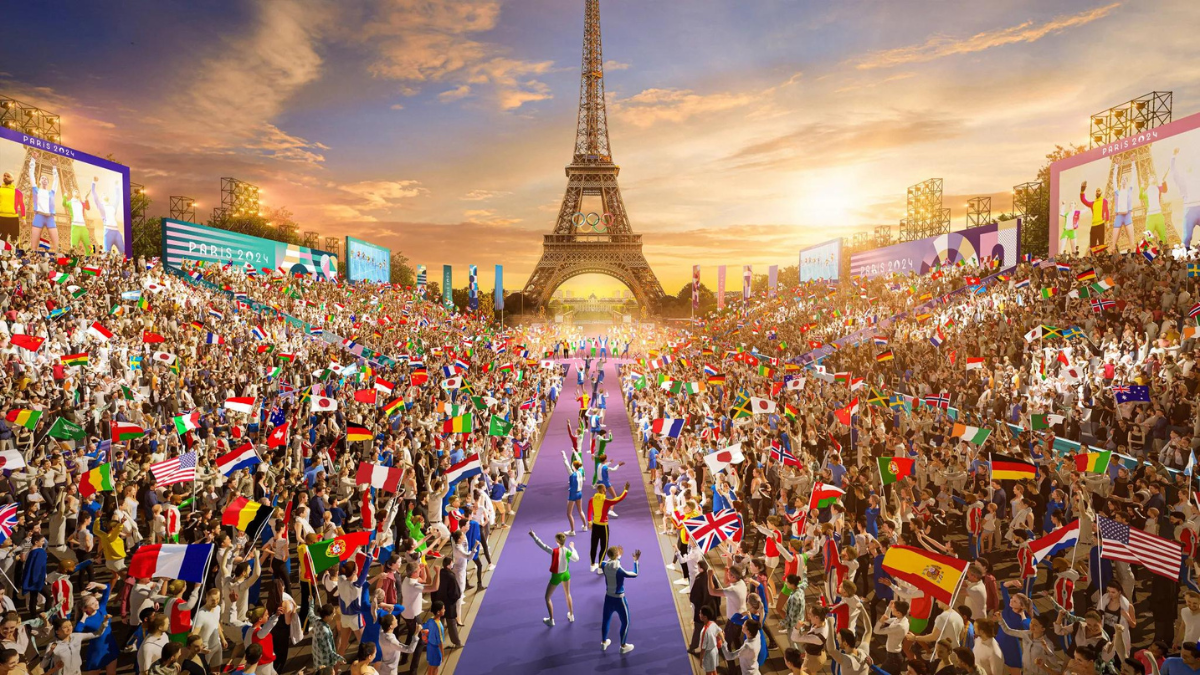With a year to go until the Paris Olympics, the games appear to be on course to hit or even smash their sponsorship revenue target, with LVMH recently announced as the final premium sponsor with a €150 million deal.
The Olympics has long been attractive to corporate sponsors but hasn’t been without its challenges: the Beijing 2022 Winter Olympics were marred by reports of China’s human rights issues, Rio 2016 Summer Olympics faced logistical challenges and the Tokyo 2020 Summer Olympics were delayed due to the pandemic.
But as we return to live events, could the Paris 2024 Olympic Games be the biggest Olympic marketing opportunity for brands in over a decade? And how can brands ‘win’ at this upcoming Olympics? Three industry experts discuss the opportunities:
Nick Blenkarne, Head of Creative Strategy at Imagination
As one of the most watched sporting events in the world, with a reach of over 2 billion, the Olympics is unarguably a huge opportunity for brands. But with so many brands vying for attention during a period where viewers are focused on the sport, cutting through is challenging. Brands that have successfully done so at the Olympics in the past have followed a playbook that’s both well established, but also hard to execute.
Intel was responsible for 32% of sponsor related mentions on social media at Pyeongchang 2018, leading all top-tier sponsors. They achieved it through a record-breaking synchronised drone show, featuring 1,218 drones during the opening ceremony. A technological spectacle that hadn’t been seen before, broadcast on a global stage.
The lesson for brands: Find something that’s authentic to you and look for ways of inserting it into the key cultural moments that people are tuning into already… in a way that’s relevant, rather than seeking to interrupt or distract attention from the main event.
Geoff Miller, Senior Director, Client Services at Interbrand
The Olympics is a huge cultural moment and any brand associated or involved with the Games knows it is an opportunity to be seen as more desirable. For the Olympics in Paris, there has been a major push from French brands to capitalize on the Games and LVMH’s most recent announcement as the final premium sponsor (alongside BCPE banking group, pharma maker, Sanofi, and supermarket chain, Carrefour), in part emphasizes creating an experience that is uniquely ‘French’. It also reaffirms the luxury category is continuing its growth trajectory — making moves outside the narrows of its industry.
Beyond immediate opportunities to celebrate LVMH’s provenance as a French luxury brand (and its ability to maintain a distinct cultural flavour of France throughout the games), the XXXIII Olympiad provides LVMH’s Maisons with the chance to cement their premium natures and extend an invitation to a new generation of customers — from prestigious jeweler Chaumet designing medals to LVMH’s beauty retailer, Sephora sponsoring the torch relay.
As one of the pinnacles of world sport, The Olympics offers an immediate way for LVMH (specifically Louis Vuitton) to bridge the worlds of fashion and sport and associate itself with the craft, dedication and sacrifice required to produce greatness — whether the result is the watch itself or the athletic performance it measures. Perhaps more importantly for LVMH, however, is the opportunity to cultivate affinity with niche and younger audiences, who the IOC is betting will tune in for sports like skateboarding, surfing and climbing (returning after their debuts in Tokyo in 2021) and breakdancing, which will debut in Paris. It is also seizing the moment to present itself to audiences as a champion of access and inclusion, as its sponsorship of the Games also includes support for non-profit French Popular Relief’s efforts to combat youth poverty and discrimination through access to sport.
This isn’t your parents’ idea of a luxury leader, but for LVMH, that’s the point.
James English, Managing Partner at Fuse
The Paris 2024 Olympic and Paralympic Games present a unique opportunity for brands to get involved in the excitement. After Tokyo 2020 and Beijing 2022 were staged in largely empty stadiums due to Covid, Paris 2024 represents the return to normality for the world’s largest sporting event. For brands, there’s a huge opportunity due to the transcendent nature of the Olympic and Paralympic Games — they are not only a major sporting competition, but also international cultural events. Fans from around the world will watch The Games and engage through moments of national pride or human endurance. Those brands that activate successfully around these two events, and include sport sponsorship as part of their ads and campaigns, will reap stronger long-term and short-term business effects — which we coin ‘The Sport Dividend.’
The Olympic and Paralympic Games are one of the few global events that have the pulling power to bring an incredibly broad audience closer to sports they may not have watched outside of the Games. Our recent research with creative effectiveness platform, System1, has proven, for the first time, that sport sponsorship in brand activations elicit stronger feelings of happiness than traditional brand-led advertising. Given happiness is one of the key emotional drivers of purchasing decisions for people, this uplift can lead to increased market share gain for brands.
While we patiently wait to see how the 2024 Olympic and Paralympic ads play out, we’ve seen the positive outcomes of sport sponsorship already in other areas. For example, Vodafone’s ad tied into Wimbledon celebrated the challenges, achievements and huge sense of pride from a parent of a wheelchair tennis champion. When shown to a general audience, the ad achieved a 3.1-star rating from System1 (out of 5.9-stars) compared with the usual 2.2-star rating for mobile networks, and among sports fans it proved a 5-star ad. Brands that can play an authentic role in these moments are best placed to capitalise on the excitement around the Olympic and Paralympic Games.
Featured image: Paris Olympic 2024 / paris2024.org

